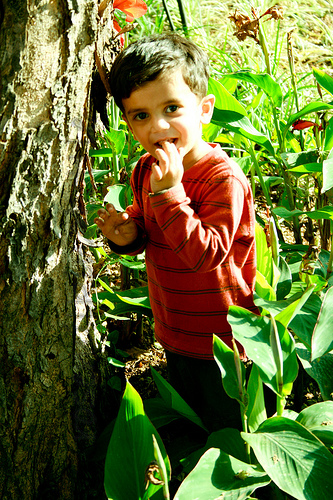I often come across parents of nuclear families these days that are juggling between work, home, and baby- sitters. They constantly ponder about the fact that their children would be raised better in the hands of their family members or grandparents versus a baby- sitter, or a care- taker. So are we blaming the changing structure of families to give rise to this new set of tensions? Of course, the nuclear family versus joint family debate has been ongoing, which in turn has impacted the way child rearing takes place. Since the breakdown of the joint families has started, it has resulted in a great disconnect from the extended family which is making children more aloof and isolated. The concept of cousins being your child’s first set of friends, is disappearing by each passing day. With joint families, childcare arrangements were never an issue. But now mothers have to worry about leaving their children with care- takers who could possibly be total strangers.Children are becoming more and more detached from the socio- cultural events. You and I have probably grown up celebrating a lot of festivals with a large group of family members visiting from all over the city, or even country. That has now boiled down to just the parents and children having a quiet dinner along with probably a few friends. Does that leave you thinking that you’re unable to provide a comforting and nurturing environment for your child, while you’re away at work? A great deal of our energy is spent wondering, whether children are in tune with the spiritual and religious aspects that we have been raised with, or whether the environment they’re growing up in is nurturing enough. Do you often ponder about the disadvantages of having a nuclear family? Lets pause and think about the ways in which we could integrate this shift in lifestyle with a healthier approach in addressing these issues. Giving nuclear families the “heads up”– There can also be advantages of nuclear families Not all is bad when raising a child in a nuclear set up. As I was discussing these issues with some of my clients in therapy, they brought up a very empowering aspect of the nuclear family set up- the child learns to become independent and develops a sense of autonomy at an early age. And this can be a positive aspect in this situation. It is important to allow for independence to facilitate and build autonomy in children. Things like, letting them decide their sleep timings and involving them in household chores go a long way in developing a sense of responsibility in children. Also, this little contribution in the housework by parents as well as the children could be one of the shared activities the family could do together. “My opinion matters”: Role of children in the Family As parents of nuclear families, there’s another advantage you can build for your children, by letting them know that their opinion in making decisions matters. It could be as trivial as deciding the color of your new car, or as important as deciding their own career path. Taking into account the opinions shared by your children could be an important step in validating them. This role of children in the family in making decisions could be an important aspect in shaping your child’s personality. This aspect can also more commonly be called- the role of consensus. Making small rituals a part of your weekly activities together could help your children keep in touch with the cultural aspect they are told to be losing out upon. Hopefully, these little things will help you as parents to nurture your child’s development. Not intending to sound clichéd but isn’t it too apt to say that change is, and will be inevitable. Its upon us how we try to make it difficult on ourselves, or use it in a way that would be beneficial to us, and our children, who are, the future generation. I came across this article which presents an interesting take on Modern Families and its effects on Children. Click here to read. Image Credit: Yogendra174 About the Author: Bijal Oza is a Psychologist & Counselor at Inner Space – A center for counseling and psychological assessment. You can know more about her here. You can follow Inner Space on Google+ Facebook and Twitter for regular updates of our work and share with us what you feel about this post.









